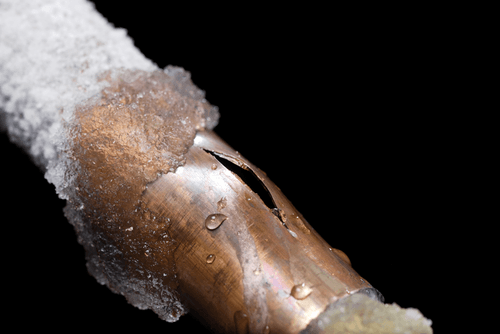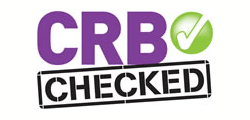With the recent rise in energy costs, consumers are looking at cost effective ways to stay warm this winter. Meaning when temperatures drop, we may put on extra layers of clothing rather than turning on the central heating. So it’s more important now than ever to be vigilant around frozen pipes.
Bust pipes due to freezing are a major problem. Not only will it stop your heating and hot water, a leak or flood can also cause extensive damage to your property.
In winter, if pipes are not properly insulated then the water inside them can freeze.
There is water in your pipes even when they are not being used. When the water freezes it expands, this can put pressure on the pipes causing them to burst. Pressure can also be put on pipes if some of the water in the pipe freezes and forces unfrozen water further up the pipe. Pipes can also burst once the frozen water starts to thaw.
The chance of pipes bursting is impacted by how much water is in the pipes and the type, shape, age and condition of the pipes.

What can you do to prevent frozen pipes?
Insulate your pipes. To save on costs, you can do this yourself. You will need to purchase pipe lagging, tank jackets and tap covers.
All outside pipes will need to be insulated - this includes straight lengths of pipe, bends, valves and fittings.
You will also need to ensure pipes are insulated in the colder areas of your home such as garages, basements and lofts.
Tank jackets can be used to protect your water tanks and tap covers can be used to protect your taps.
If your property is going to be empty for long periods, turn off the water and open taps to drain the system. Just be sure to turn the taps off again once the system is empty.
What are the signs your pipes may be frozen?
Signs your pipes may be frozen are:
- Slow flushing toilets
- Slow draining sinks
- No water coming out of your taps
- Your boiler stops working
What should I do if you have a frozen pipe?
Locate the Frozen Pipe
Search outside and in cold areas of your property. Look for areas of pipe that are not insulated, cold to touch or covered in frost.
Finding which taps are not working or toilets not flushing may help you narrow down your search.
Thaw the Frozen Pipe
Firstly turn the water off using the stop cock. Thawing pipes needs to be done carefully, make sure taps are open so when the water melts it doesn't cause pipes to burst. Warm the pipes using hot cloths, hot water bottles or hairdryers on a low setting. There are a lot of videos online that can take you through the process.
What should I do if I have a burst pipe?
There will be instances when the pipes burst before you even realise they have frozen.
If this happens you will need to:
- Turn off the water
- Drain what is left in the system by opening taps (turn them off again after)
- Turn the electricity off
- Soak up any water that you can
- Call your insurance company
- Call a flood damage cleaning company
Flood Dr are one of the leading flood damage remediation and restoration companies. If you experience a flood or water damage in your property contact us today to speak to our helpful customer service team.







